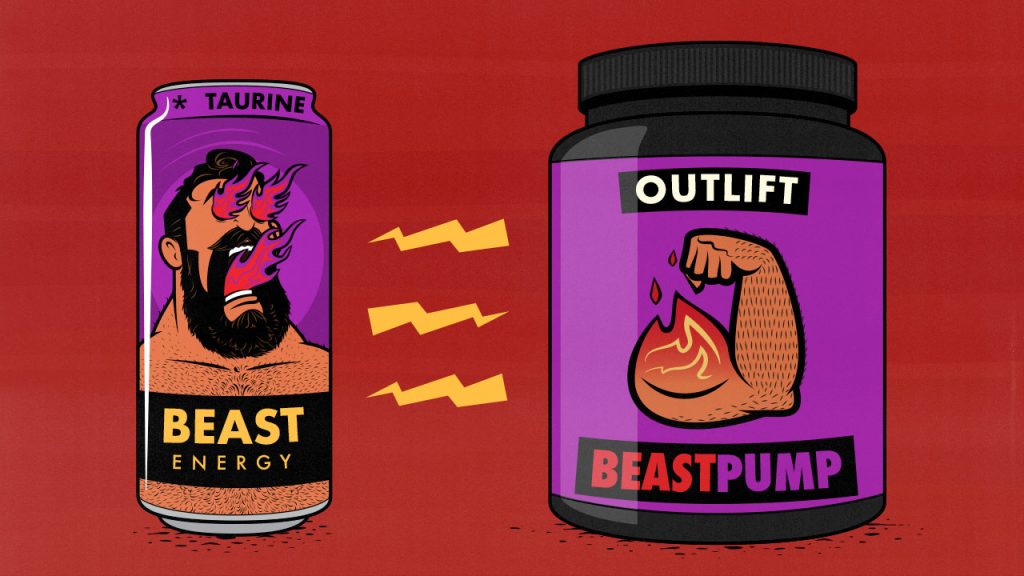
Energy Drinks vs Pre-Workouts: Differences Explained
Pre-workouts and energy drinks both have the same main ingredient: caffeine. The difference is that pre-workouts are specifically for improving exercise performance, fitness, and muscle growth, whereas energy drinks put more emphasis on cognitive and health benefits.
If you aren’t exercising, energy drinks are better. If you are exercising, you could make a strong case for pre-workouts. They really can improve exercise performance and muscle growth. It’s not quite that simple, though.
I’ll explain all the ingredients in pre-workouts vs energy drinks, including all the benefits of having a pre-workout before working out. Then, I’ll explain why I ignore those benefits and buy energy drinks.
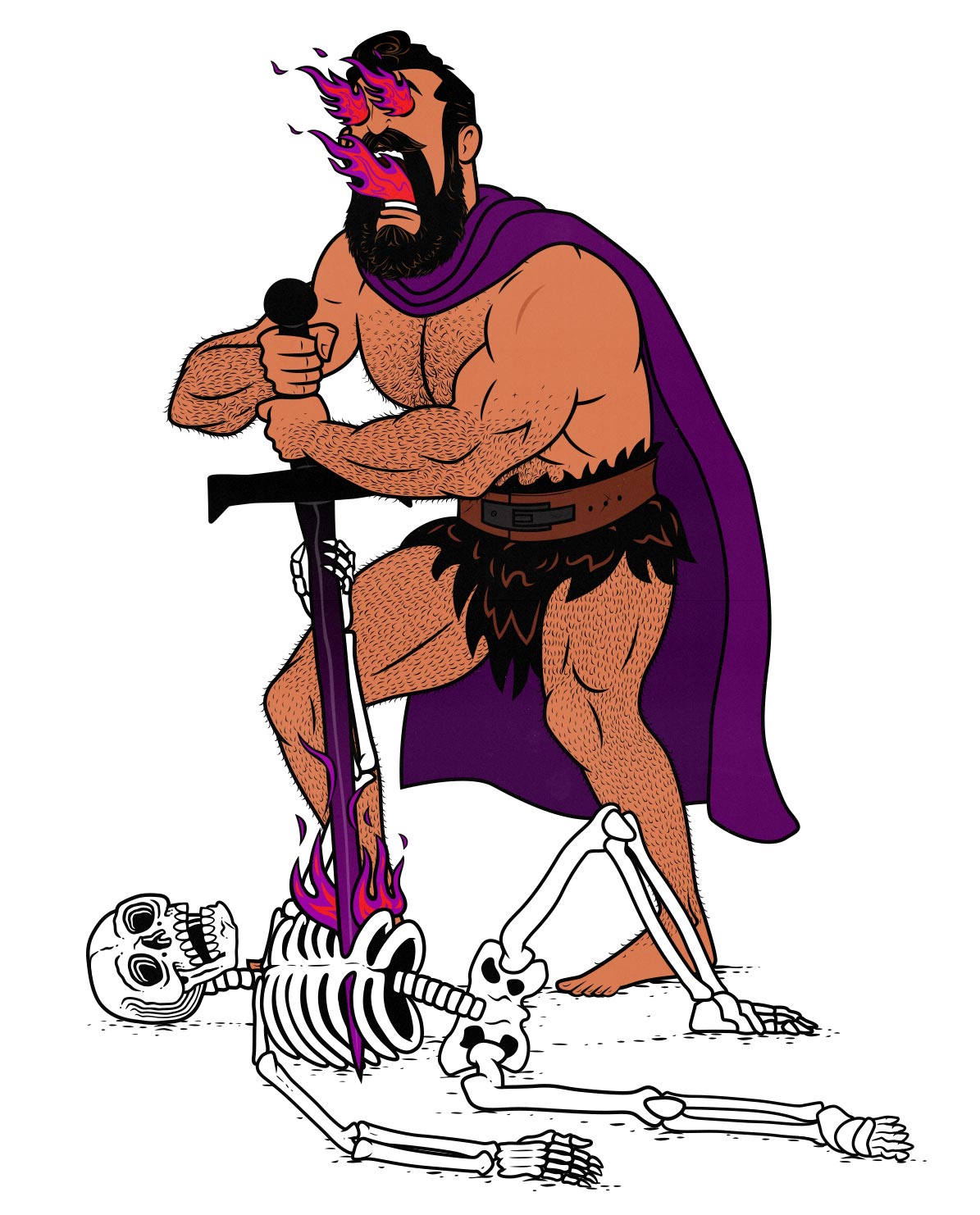
They’re Both Powered by Caffeine Powder
Caffeine is by far the most powerful ingredient in both pre-workouts and energy drinks. Even if you use it all by itself, it can rival the performance boost you get from fancier combinations of ingredients (study). That’s why energy drinks and pre-workouts feel so similar. That’s why you can use them interchangeably.
Caffeine banishes fatigue, giving you the desire and energy to exercise. It also seems to (slightly) blunt pain and improve workout performance (study, study). And if you can do more work, you can stimulate more muscle growth (to a point).
Powdered caffeine (known as caffeine anhydrous) doesn’t have the phytonutrients that make coffee and tea nutritious, but it’s more potent, giving you a greater boost in energy. Sometimes caffeine is combined with L-theanine (from tea) to smooth out the jitters, giving you calmer energy (study).
Pre-workouts usually contain more caffeine than energy drinks. Red Bull has 80mg, and Monster has 160mg, whereas Optimum Nutrition’s pre-workout has 175mg, Cellucor’s C4 has 200mg, and Legion’s Pulse has 350mg.
Different people have different caffeine tolerances, but most people can have up to 400mg per day without it affecting their health (study). Mind you, the more caffeine you drink, the earlier in the day you ought to drink it. If your pre-workout has 350mg, you should probably train in the morning.
Breakdown of Pre-Workout Ingredients
Most pre-workout supplements are built around caffeine, but if you train in the evening, you can look for ones that are stimulant-free. They aren’t as powerful, but they won’t interfere with your sleep, and sleep gives you more energy than a drink could ever dream of.
Aside from caffeine, pre-workout supplements usually have:
- Creatine improves muscle growth, but there’s no immediate benefit to it, and you should take 5 grams every day, not a few grams a couple of times per week. Thus, pre-workouts aren’t a very good place to put creatine. Better to buy it separately.
- Beta-alanine is similar to creatine but less effective and even less relevant. It can improve performance when you’re exerting yourself for 1–10 minutes (meta-analysis), but most people’s sets last less than a minute. Plus, like creatine, you need to take a few grams every day, so there’s no reason to put it in a pre-workout. Finally, it gives some people (including me) paresthesia, which feels like being devoured by spiders from the inside (study).
- Citrulline malate (and other vasodilators like betaine and arginine) increase blood flow, giving you bigger muscle pumps and modest improvements in performance. You can get those benefits by eating a diet rich in nuts, spinach, watermelon, carrots, beets, and garlic (study). Still, supplementing with 8 grams of citrulline malate might help even more, and it tastes fantastic. Most brands use 1–2 grams, which probably won’t do very much.
- Amino acids (like BCAAs) are good if you train first thing in the morning on an empty stomach, especially if you won’t be eating right afterwards. They also count towards your daily protein total, which is great for almost everyone. Most people don’t need them in a pre-workout, but they certainly don’t hurt!
- Flavours and sweeteners seem to be fairly benign. There’s no good evidence showing any harm to them. A lack of evidence doesn’t mean evidence of absence, but I’m not particularly worried. However, some of them can cause gas. The natural sweeteners in Legion’s Pulse pre-workout are infamous for that.
- Banned, dangerous, and illegal PEDs are fairly common in pre-workouts. I used to have SuperPump from Gaspari, which went bankrupt after trace levels of illegal substances were found in some of their supplements. Jack3d was popular until one of its ingredients was banned for being too similar to meth. Plenty of pre-workouts are perfectly fine, but make sure you trust the company you buy from.
- Water improves energy levels and workout performance. You wouldn’t get this benefit from dry scooping, but you shouldn’t dry scoop anyway.
Caffeine, citrulline malate, betaine, and amino acids are all effective ingredients under the right circumstances. The other ingredients might not help as much, but I doubt they hurt, and there doesn’t seem to be any harm in them. Thus, a good pre-workout can improve muscle growth without being bad for your health.
Breakdown of Energy Drink Ingredients
All the popular energy drinks have caffeine, though they tend to have less than pre-workouts. They might not boost your energy quite as high, but you can have them more often, later in the day, and still have room for coffee or tea.
Aside from caffeine, energy drinks usually have:
- Taurine comes from meat, dairy, and fish. If you don’t get enough from your diet, supplementing with it may modestly improve your cardiovascular health (study). One meta-analysis found that the taurine in energy drinks improves workout performance (meta-analysis). Supplementing with it seems to be healthy and safe (study).
- B vitamins can improve health and cognition in people who don’t get enough from their diets. Niacin can improve heart health, but if you have too much, it can blunt insulin sensitivity (study). You probably won’t get too much from occasionally consuming energy drinks.
- Inositol comes from citrus fruits, bran, beans, nuts, and seeds. Supplementing with it seems to improve insulin sensitivity (meta-analysis). I’m not sure if it improves energy or workout performance.
- L-carnitine can improve aerobic workout performance by helping us convert fat into energy. It also improves sperm quality, cardiovascular health, and blood sugar regulation (meta, meta, meta).
- Sugar can improve exercise performance if you work out on an empty stomach. However, you shouldn’t get more than 10% of your calories from sugar. Sugar-free energy drinks are easy to find.
- Water helps with hydration, improving energy and performance.
If you want heart-healthy supplements, you’d be better off with garlic, psyllium husk, spirulina, and fish oil. Still, it’s nice to know that having an energy drink before working out probably has a neutral to slightly positive effect. Plus, the caffeine will get you almost all the muscle-building benefits of a pre-workout.
The Outlift Pre-Workout Isn’t Ours
Nutrex has a pre-workout supplement called Outlift, and we have nothing to do with it. We aren’t affiliated with them; we just both happened to choose great names.
The Outlift pre-workout has 350mg of caffeine, which is higher than I’d want but still within the recommended daily limit of 400mg. It also has 8 grams of citrulline malate, 6 grams of BCAAs, and 2 grams of taurine. Those are great doses of great ingredients, but it also has a full dose of beta-alanine, and I don’t ever want to feel those spiders again. I haven’t tried it.
Pros and Cons
Both pre-workouts and energy drinks are powered by caffeine powder but offer some smaller benefits from secondary ingredients. Those ingredients tend to be neutral or healthy, but some pre-workouts are laced or contaminated, and the acidity and sugar of energy drinks can be bad for your teeth if you drink them too often.
The main downside to pre-workouts and energy drinks is that they’re so high in caffeine that having them in the evening can make it harder to sleep at night, not only harming your results, but also giving you less energy in the longer term.
Both contain ingredients (like caffeine, amino acids, and sugar) that are especially helpful when you have them on a relatively empty stomach first thing in the morning. Thus, I think they worst best for people who want a boost of energy before a morning workout.
Which is Better?
Pre-workouts work well, but they don’t taste as euphoric as energy drinks, and I don’t like the feeling of being swarmed by spiders. That’s why I shy away from them.
I like the idea of the mildly heart-healthy ingredients in energy drinks. Plus, I’m a naturally skinny guy, so I appreciate the extra calories. Those extra calories come from sugar, but sugar is helpful before exercise, so I consider that a good thing.
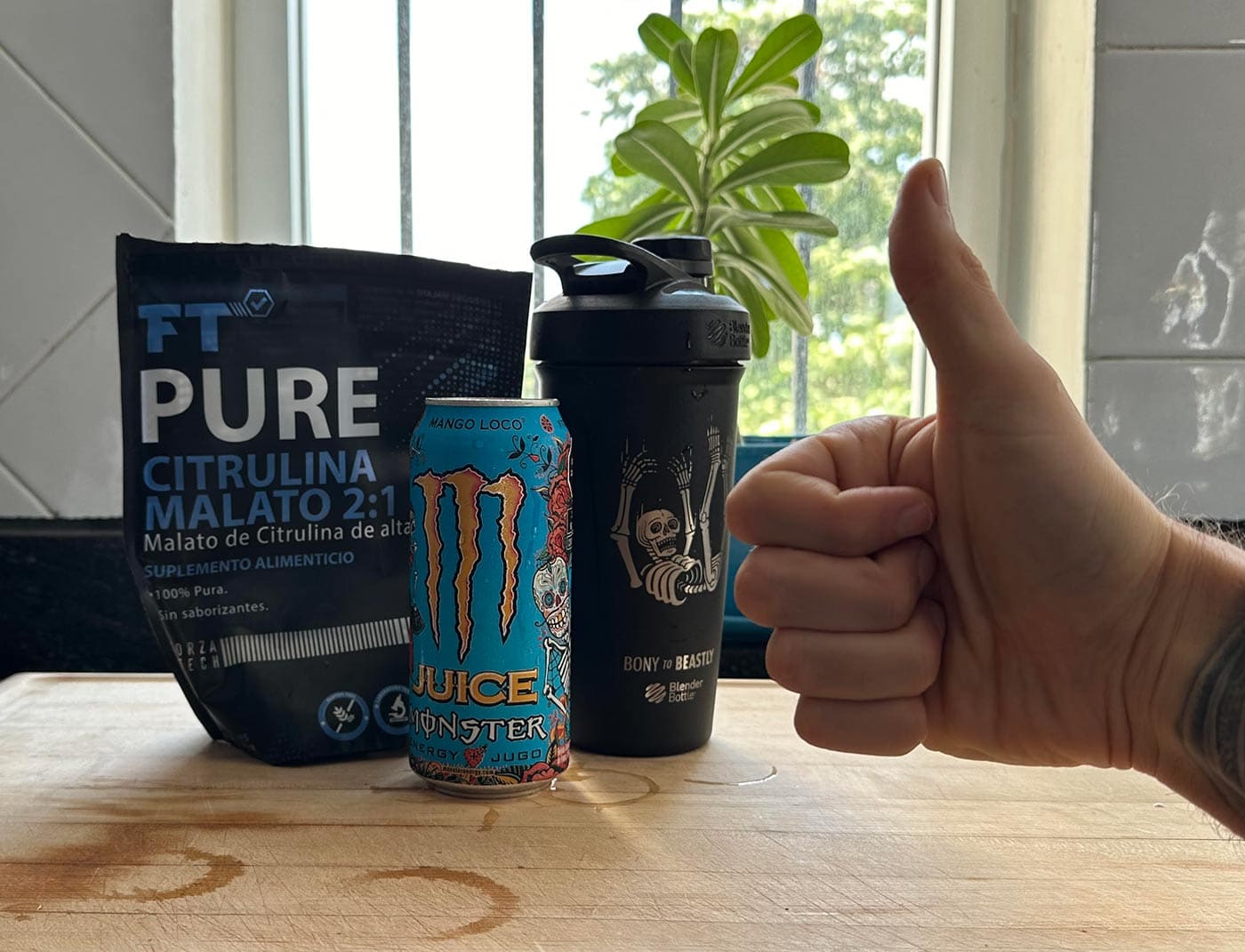
I drink Monster’s “Mango Loco” flavour. I’m not sure if that flavour is unique to Mexico. Sometimes, I’ll stir in 8 grams of citrulline malate, giving it a more intensely sour taste and ostensibly improving blood flow and muscle pumps (though I can’t tell the difference).
If you aren’t me, go with your own preference. Both pre-workouts and energy drinks are similarly effective. Pre-workouts are slightly better at improving workout performance, so if you don’t mind beta-alanine, then they make for a good default. I like Elemental Formulation’s pre-workout. (That’s not an affiliate link.)
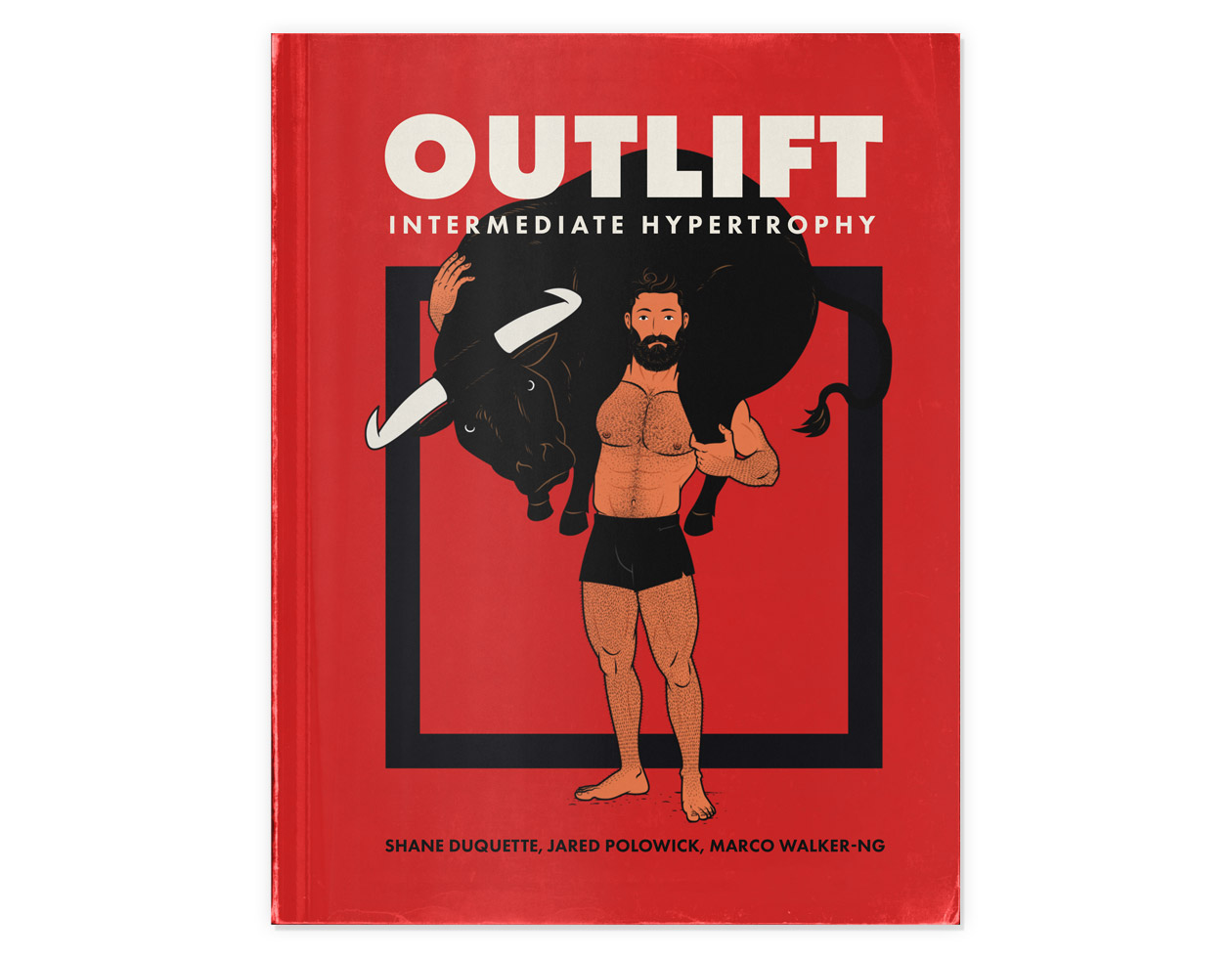
If you’re new to lifting weights, try our Bony to Beastly (men’s) program or Bony to Bombshell (women’s) program. Or, if you’re already an intermediate lifter, check out our customizable Outlift Intermediate Hypertrophy Program.
If you have any questions, drop them below. I’ll answer all of them.


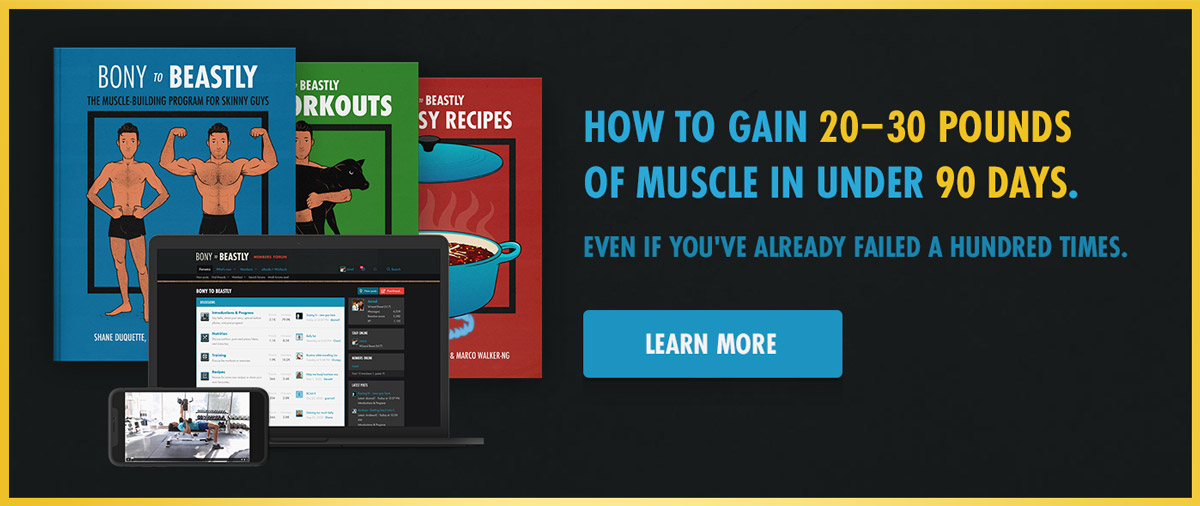
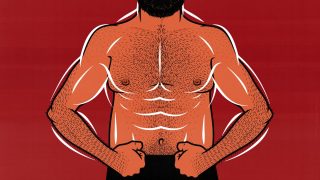
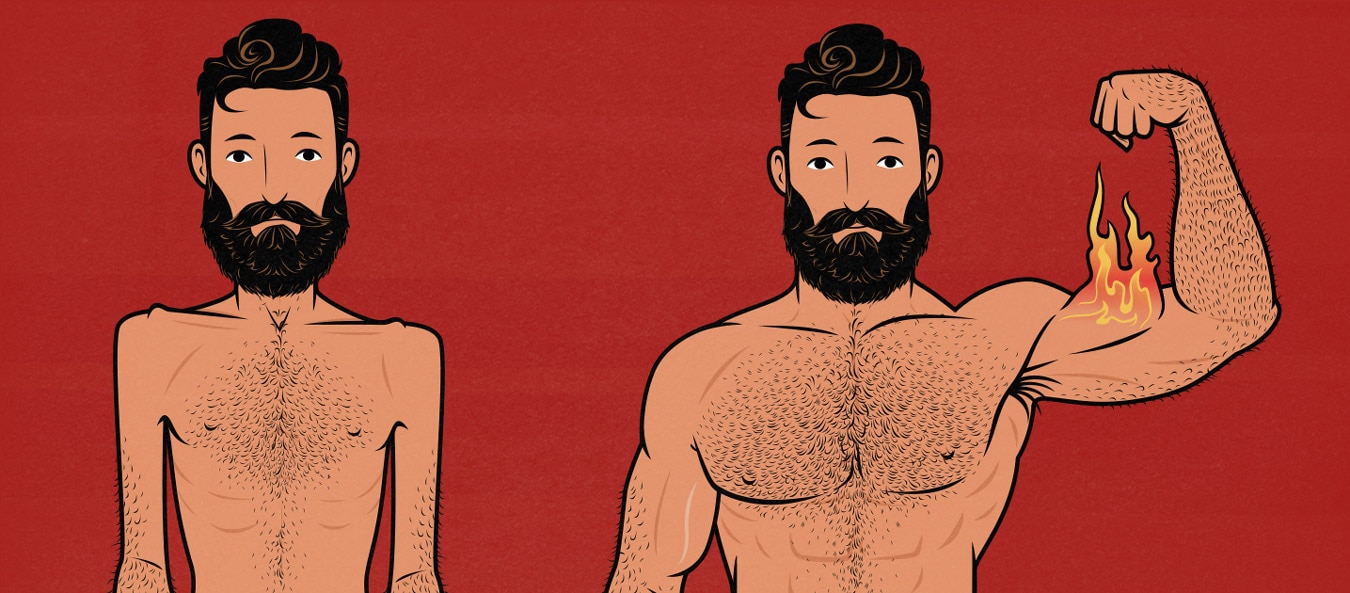
Heh. I like to keep it simple with my pot of coffee, black as a banker’s heart, along with the usual breakfast routine of the bowl of oat bran (infused with good quality whey protein powder and natural peanut butter), creatine, and an underripe banana (all to give something for the gut to work with the handful of vit/min supplements). I remain a bit suspicious of sugar alcohols in any supplement that has sweeteners, but that is more for those of us always trying to regulate blood sugar in general. It also somewhat depends on the energy needs for the type of sessions we do.
Anecdotally, I see us older lifters (40+ group) more likely to hit the coffee shop near our gym than reach for the preworkout energy beverages. Maybe because we are old and suspicious by nature and hate change, lol.
The arguments rage on which are more effective: pre-workout, post-workout, both. As you pointed out, a slight advantage in the studies favours the pre-workout, but is likely negligible. Personally, I like both + during, which is to say “during” involves the 90g protein powder to be sipped throughout the session (which, for those of us obsessed with blood sugar levels, tends to help even things out to avoid the sugar dip during, say, the more cardio-intensive activities, and that includes heavy leg day in taking short to nonexistent breaks which count toward some measure of cardio).
I agree with you, actually. You’re doing what I wish I wanted to do. In fact, nowadays I’ve been saving my 2–3 weekly energy drinks for before my longer runs, which means my weight training gets fuelled by black coffee and oatmeal.
I don’t think using energy drinks and pre-workouts (in moderation) is bad for you, but drinking coffee (in moderation) is much better than that: it’s GOOD for you. And we know that with much greater confidence. It’s one of the oldest, most traditional, and most studied drinks.
I built most of my muscle while having “intra-workout” drinks during the workout. A mix of whey protein, maltodextrin, and spirulina powder. Now I get more of those calories from whole foods, but I can’t deny that the intra-workout drink worked fantastically well.
As always, great comment 🙂